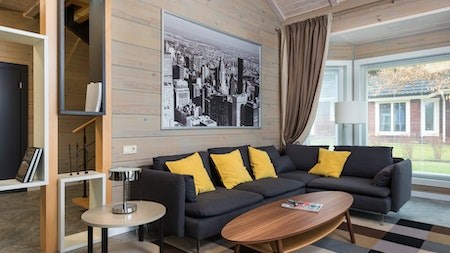While the commercial property market appears to have stabilised and is poised for improvement according to the second quarter FNB Broker Survey, challenges including vacancies remain.
What are the areas of growth?
One area of growth which could take up some of the void left is small businesses, according to Seeff’s commercial property specialists who are seeing an increase in demand for smaller spaces. The FNB Survey incidentally also noted that many commercial property brokers believe that small business growth can benefit the retail and industrial sector.
Frances Gray-Mnukwana, a commercial property specialist with Seeff False Bay, says there is currently strong demand in the Cape for smaller retail space in high traffic areas and shopping malls with good trading records. Smaller industrial units from 50sqm to 100sqm are also in high demand.
Most clients are looking for rentals while the commercial sales market remains a challenge with transactions taking longer and pricing remaining an issue. Fair priced commercial stock in Cape Town is limited and most of what is on the market is overpriced.
Sellers are not in a rush to sell and are sticking to their asking prices. There is no demand to buy office space, especially in the Cape Town CBD. Many businesses have staff who are operating remotely or due to a decline in turnover, are operating from home.
Commercial property buyers want “below market value” investments so that they can resell at a profit, she says further. Many sellers are now opting to take their properties to auction to test the market on price. If still not sold, they either roll it over to the next auction, or withdraw from the market.
While there are now a lot of lease enquiries for commercial space, getting new leases concluded is a challenge. Many landlords are retaining their existing tenants on more competitive deals. Small businesses are now often looking outside of the high-density CBD areas which are more costly. This is driving business to popular neighbourhoods such as False Bay where they can find lower rentals, she says.
A challenge is that small businesses do not always have great credit histories. There are some tenants who suffered due to the poor trading conditions caused by the Covid lockdowns. In some instances where rental agreements were broken due to the effects of the lockdowns, this is now reflected in credit histories and is blocking some landlords from accepting offers to lease from these tenants.
She recommends that commercial landlords could look at accepting more competitive rental offers and shorter lease periods. They could also double the monthly rental deposit which could be paid off over a six months period as most smaller tenants have a cash flow issue with the large upfront payment requirements.
The upside is that there seems to be many entrepreneurs looking for small business opportunities and if landlords are struggling to fill their spaces, this could be a great alternative.
Writer : Gina Meintjes




